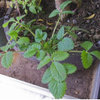Anyone familar with Roundup Weathermax?
daryljurassic
15 years ago
Featured Answer
Sort by:Oldest
Comments (11)
suburbanmd
15 years agolast modified: 9 years agoRelated Professionals
Danbury Landscape Architects & Landscape Designers · Accokeek Landscape Architects & Landscape Designers · Camas Landscape Architects & Landscape Designers · Forest Park Landscape Architects & Landscape Designers · Fort Lee Landscape Architects & Landscape Designers · Redondo Beach Landscape Architects & Landscape Designers · San Juan Landscape Architects & Landscape Designers · Williamsburg Landscape Contractors · Surprise Landscape Contractors · Lancaster Landscape Contractors · Plainview Landscape Contractors · Sun City Center Landscape Contractors · Tamarac Landscape Contractors · Welby Landscape Contractors · Silver Firs Landscape ContractorsKimmsr
15 years agolast modified: 9 years agosuburbanmd
15 years agolast modified: 9 years agoJAYK
15 years agolast modified: 9 years agodaryljurassic
15 years agolast modified: 9 years agosuburbanmd
15 years agolast modified: 9 years agodaryljurassic
15 years agolast modified: 9 years agosuburbanmd
15 years agolast modified: 9 years agodaryljurassic
15 years agolast modified: 9 years agodawiff
15 years agolast modified: 9 years ago



rhizo_1 (North AL) zone 7